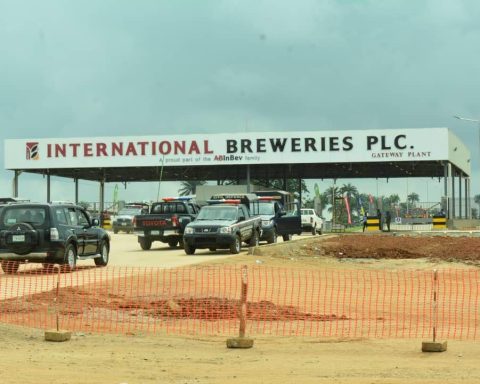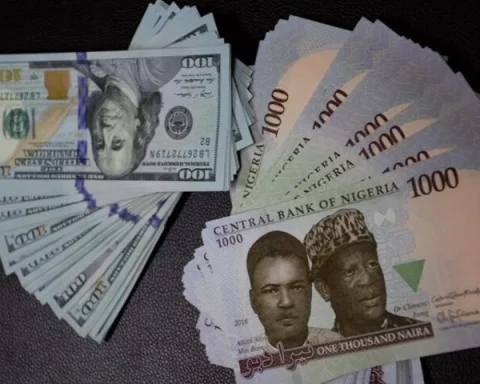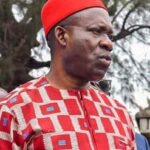The Federal Government of Nigeria has begun formal discussions with the International Monetary Fund (IMF) to develop a transparent fuel price modulation framework and strengthen the country’s fiscal resilience amid global energy market volatility.
The initiative, spearheaded by the Ministry of Petroleum Resources (MPR), is part of President Tinubu’s broader economic reform agenda aimed at ensuring fiscal stability, transparency, and energy transition.
Permanent Secretary of the Ministry, Dr. Emeka Vitalis Obi, disclosed this during a joint engagement in Abuja between the Ministry, its regulatory agencies – the Nigerian Upstream Petroleum Regulatory Commission (NUPRC) and the Nigerian Midstream and Downstream Petroleum Regulatory Authority (NMDPRA) and the IMF Fiscal Affairs Department (FAD) Technical Assistance Mission on Climate Policy.
Join our WhatsApp ChannelAccording to Dr. Obi, the engagement seeks the IMF’s continued technical assistance in designing a robust and transparent price modulation mechanism that will cushion domestic price shocks, preserve fiscal discipline, and stabilise Nigeria’s energy market against global disruptions.
“Nigeria’s engagement with the IMF is part of broader efforts to build resilience within our fiscal and energy management systems. A transparent price modulation mechanism will protect the economy from extreme global volatility while maintaining fiscal responsibility,” Dr. Obi stated.
READ ALSO: Nigeria Trails Behind as Smaller African Economies Lead IMF Growth Rankings
IMF Warning: What Nigeria Must Do To Take Control Of Its Economy
He described the collaboration as timely and strategic, noting that it aligns with ongoing efforts to consolidate post-pandemic recovery, manage climate-related fiscal pressures, and sustain long-term energy reforms.
Dr. Obi further emphasised that the removal of the general fuel subsidy was a bold but necessary step toward fiscal stability. He said the savings from subsidy removal were already being redirected towards infrastructure, social welfare, and renewable energy investments.
Highlighting Nigeria’s environmental priorities, he noted that the Nigeria Gas Flare Commercialisation Programme (NGFCP) and emerging carbon-credit frameworks are central to government efforts to reduce methane emissions and promote gas utilisation in power generation, fertiliser production, and Compressed Natural Gas (CNG) markets.
“These measures directly support Nigeria’s Nationally Determined Contributions (NDCs) under the Paris Agreement and align the petroleum sector with global Environmental, Social, and Governance (ESG) best practices,” he said.
Dr. Obi also called for sustained IMF partnership, both technical and financial to enhance fiscal analytics, climate policy modelling, and carbon-pricing readiness.
Leader of the IMF Technical Team, Mr. Diego Mesa, commended the Ministry for what he described as a forward-looking and comprehensive energy reform agenda. He explained that the IMF mission, invited by the Federal Ministry of Finance, forms part of broader engagements on fiscal reforms, sustainable development, and climate policy.
“Our discussions with the Ministry of Petroleum Resources will focus on fiscal frameworks for fossil fuels, carbon taxation, and sustainable transition pathways,” Mesa said.
On their part, the NUPRC and NMDPRA reaffirmed their commitment to sustainability and regulatory transparency. NUPRC’s Director of Planning, Mr. Abdul-Afeez Balogun, said the Commission was prioritising the elimination of routine gas flaring and the reduction of methane emissions in line with the Petroleum Industry Act (PIA) 2021.
Similarly, NMDPRA’s Director of Planning, Mr. Ayodeji O. O., disclosed that the Authority was refining tariff methodologies for gas processing and pipeline operations to guarantee fair investor returns while protecting consumer interests.
The engagement attended by directors of technical departments from the MPR, NUPRC, NMDPRA, and senior IMF officials, concluded with a resolution to strengthen collaboration on Nigeria’s fiscal and climate resilience agenda.
Analysts told Prime Business Africa that the partnership between the Federal Government and the IMF marks a significant step in Nigeria’s post-subsidy transition.
If effectively implemented, the fuel price modulation framework is expected to provide a predictable pricing structure, enhance fiscal stability, and rebuild public trust in the nation’s energy governance.
Amanze Chinonye is a Staff Correspondent at Prime Business Africa, a rising star in the literary world, weaving captivating stories that transport readers to the vibrant landscapes of Nigeria and the rest of Africa. With a unique voice that blends with the newspaper's tradition and style, Chinonye's writing is a masterful exploration of the human condition, delving into themes of identity, culture, and social justice. Through her words, Chinonye paints vivid portraits of everyday African life, from the bustling markets of Nigeria's Lagos to the quiet villages of South Africa's countryside . With a keen eye for detail and a deep understanding of the complexities of Nigerian society, Chinonye's writing is both a testament to the country's rich cultural heritage and a powerful call to action for a brighter future. As a writer, Chinonye is a true storyteller, using her dexterity to educate, inspire, and uplift readers around the world.

















